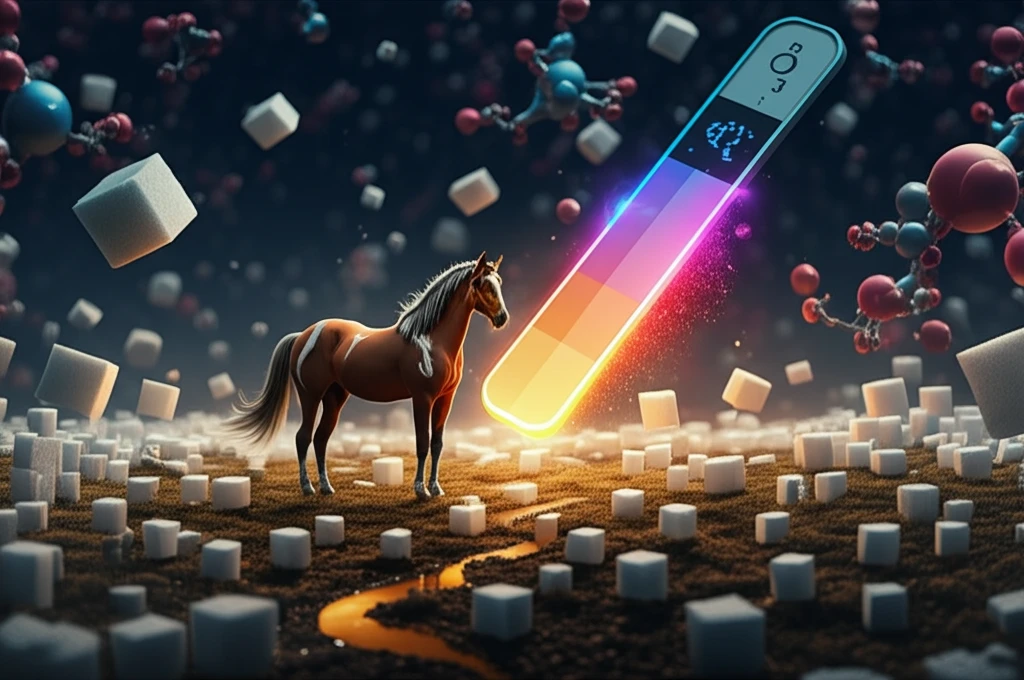
Decoding Glucosuria: What Your Horse's Urine Can Tell You
"Understanding the causes, diagnosis, and implications of glucose in your horse's urine."
Finding glucose in your horse's urine, a condition known as glucosuria or glycosuria, can be concerning. While a healthy horse should have no glucose in its urine, several factors can cause this to occur. Understanding why it happens is key to ensuring your horse's health and well-being. This article will help guide you through the causes, diagnosis, and implications of glucosuria in horses, ensuring you have the knowledge to take the best possible care of your equine companion.
Glucose is a type of sugar that serves as a primary energy source for the body. In horses, as in other mammals, glucose is filtered from the blood by the kidneys. This process occurs in the glomeruli, tiny filtering units within the kidneys. The filtered glucose is then reabsorbed back into the bloodstream by the renal tubules, preventing it from being excreted in the urine. However, this reabsorption process has its limits. When the amount of glucose in the blood exceeds the kidneys' capacity to reabsorb it, the excess glucose spills over into the urine, leading to glucosuria.
Normally, the renal tubules are highly efficient at reabsorbing glucose, ensuring that virtually none is lost in the urine. The blood glucose level must surpass a certain threshold—around 150 mg/dL—before the tubules become overwhelmed and glucose appears in the urine. This threshold can vary slightly among individual horses. Therefore, the presence of glucose in the urine is a signal that something is disrupting the normal balance of glucose metabolism or kidney function.
Causes of Glucosuria in Horses

Glucosuria in horses can arise from two primary mechanisms: hyperglycemic glucosuria and renal glucosuria. Hyperglycemic glucosuria occurs when there's an abnormally high level of glucose in the blood, overwhelming the kidneys' ability to reabsorb it all. Renal glucosuria, on the other hand, results from a defect in the renal tubules themselves, hindering their ability to properly reabsorb glucose even when blood sugar levels are normal.
- Pituitary Pars Intermedia Dysfunction (PPID), also known as Cushing's disease, is a hormonal disorder that affects older horses, leading to increased cortisol production and, consequently, elevated blood glucose levels.
- In rare cases, glucosuria may occur during diestrus, the period between estrus cycles in mares, due to hormonal fluctuations.
- Stress and excitement can cause a temporary increase in blood sugar, potentially leading to glucosuria.
Next Steps
If you detect glucose in your horse's urine, it's essential to consult with your veterinarian. They will likely recommend further diagnostic tests, including blood glucose measurements and a thorough examination of your horse's overall health. Addressing the underlying cause of glucosuria is crucial for preventing further complications and ensuring your horse maintains a healthy and active life. Regular monitoring and proactive veterinary care can help keep your equine friend happy and thriving.
